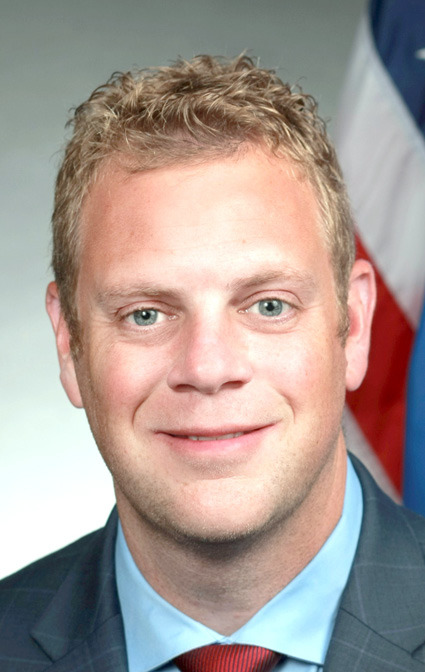OKLAHOMA HOUSE OF REPRESENTATIVES / From the desk of Rep. Brad Boles
We’ve begun Oklahoma’s 2025 legislative session, and we’ve hit the ground running to address the issues that matter most to our communities. On Monday, Governor Stitt delivered his annual State of the State address, outlining his vision and priorities for the year ahead. Meanwhile, committee meetings are already in full swing as we work to advance legislation that will make a real difference for Oklahomans. I had six of my bills pass committee hearings already this week and now advance forward to the next step in the legislative process.
One of the highlights of the past week was Rose Day at the State Capitol, a long-standing tradition where pro-life advocates from across the state gather to champion the sanctity of life. Supporters visited with lawmakers, presenting red roses as a symbol of their dedication to protecting the unborn. It is always encouraging to see so many Oklahomans come together for this cause, reminding us of the deeply rooted values that make our state unique.
As this session progresses, I want to fill you in on a number of bills I have authored that would help strengthen Oklahoma’s energy industry, protect our land and resources and ensure a prosperous future for our communities. These bills address critical issues, from plugging abandoned oil and gas wells to modernizing energy regulations, supporting landowners and improving funding for rural schools. These proposed measures would help reduce the state’s financial burden, promote responsible industry practices and create new opportunities for growth and innovation. Here is an overview about each bill:HB1369: Requested by the Oil & Gas Division of the Oklahoma Corporation Commission, this bill would eliminate Category A financial statements as surety for new operators and scales Category B surety based on well ownership. Supported by industry associations, it aims to reduce the state’s burden of plugging approximately 18,000 orphaned wells at $25,000 per well.
HB1370: This bill would revise the funding formula for Oklahoma’s well plugging program by increasing annual funding from $2.5 million to $20 million. The state currently has 18,000 orphaned or abandoned wells on its plugging list, which urgently needs to be reduced. This could increase our annual well plugging from approximately 100 wells to over 1,000 wells per year.
HB1371: Requested by the Oklahoma Petroleum Alliance, this bill would amend the Production Revenue Standards Act (PRSA) to eliminate interest penalties on royalty payments if production companies can prove they mailed the royalty check within the required time frame.
HB1372: This bill would provide a 3-year, 50% Gross Production Tax (GPT) reduction to companies that assume responsibility for wells on the state’s orphaned/abandoned well plugging list. This would save the state approximately $25,000 per well that gets taken off our list. Each participating company must post a $25,000 surety bond to the state. The goal is to transform non-producing wells, which are state liabilities, into productive assets generating GPT revenue for our state and adding jobs to our economy.
HB1373: This bill would establish statutory protections for landowners with solar facilities on their property. It introduces decommissioning regulations to protect landowners in case a solar company ceases operations, filling a current regulatory gap.
HB1374: This bill would give large industrial power users an option to provide power to their own facility behind the meter and off the grid and would not permit them to sell that power back to the grid.
HB1375: This bill would authorize and fund the Oklahoma Corporation Commission to conduct a Nuclear Energy Feasibility Study, exploring potential opportunities and challenges for nuclear energy in the state.
HB1376: Requested by the Oklahoma Manufacturing Alliance (OMA), this bill would restructure the OMA board to comply with requirements from its national counterpart, which provides half of OMA’s annual funding and has made this change necessary for future federal funding eligibility.
HB1428: This bill would allocate additional funding to high schools educating students from K-8 districts outside their boundaries. Currently, high schools receive state aid for these students but no ad valorem funding; this bill aims to balance funding without affecting K-8 schools’ existing finances.
HB1429: This bill would prohibit geoengineering within Oklahoma, banning the intentional injection, release or dispersion of chemicals or substances into the atmosphere to alter temperature, weather or sunlight intensity.
House Resolution: This resolution would urge the U.S. Congress to end federal taxpayer subsidies and tax incentives for green energy, which create an uneven competitive market advantage against Oklahoma’s oil and natural gas industry. Oklahoma’s oil & gas industry is our state’s largest industry, which employs roughly 10% of the workforce, contributes $60.3 billion annually to the economy and pays approximately $3.2 billion in annual taxes.
It’s an incredible honor to represent House District 51 at the Oklahoma State Capitol. As always, feel free to reach out about any questions or concerns that you may have throughout this legislative session. My office phone is 405-557-7405 and my email is [email protected]. God bless!



